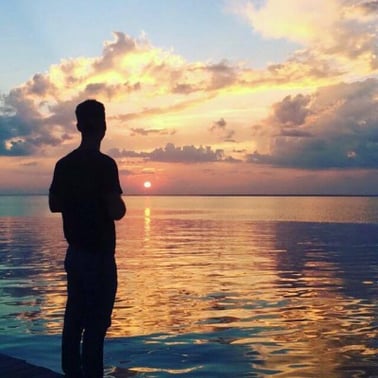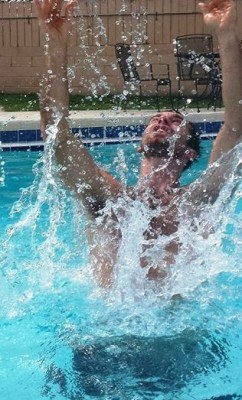 The reality of sin emerges from freedom and reveals our need for salvation.
The reality of sin emerges from freedom and reveals our need for salvation.
“Why do we need salvation?” This question asked by a college student stopped me in my tracks on a downtown street. If I answered, “We need salvation from sins,” I would also have to define sin.
I could list the deadly sins: lust, gluttony, avarice, sloth, anger, envy and pride or give an answer from the Catechism of the Catholic Church: “sin is an offense against reason, truth, and right.” Instead I realized that the word “sin” has lost some of its ability to describe our need for salvation.
In our culture, where the language of faith is often discredited and devalued, the definition of sin is difficult to articulate. Alan Jones said, “Today religious language is like that found on an old map. The places are still there, but we call them all by different names. Idolatry is now called addiction. Sin is called neurosis or pathology. Salvation is called liberation or individuation.”[1] These new names, while helping us acknowledge our contemporary disquiet, may also lead us to seek deliverance in counterfeit remedies.
We all acknowledge and uphold our freedom to pursue happiness. Why then do we still find something amiss? Augustine says, “Our heart is restless until it finds its rest in you.” St. Paul describes our sinful nature as filling this restlessness with what is contrary to the Spirit, “The sinful nature wants to do evil, which is just the opposite of what the Spirit wants. And the Spirit gives us desires that are the opposite of what the sinful nature desires. These two forces are constantly fighting each other, so you are not free to carry out your good intentions” (Gal. 5:17). In his Letter to the Galatians Paul contrasts the works of the flesh (referring to selfish actions done apart from faith, others and God) with the fruit of the Spirit.
 Just as sin reigned in death so too would grace reign in reconciliation leading to eternal life through our Lord Jesus Christ (Rm. 5:19).
Just as sin reigned in death so too would grace reign in reconciliation leading to eternal life through our Lord Jesus Christ (Rm. 5:19).
The reality of sin emerges from freedom itself and underscores our need for salvation (Cf. Paul Ricœur). We can’t achieve what we desire and look for it in the wrong places. In a multitude of ways we are promised release from the cares of a difficult path of self-transcendence and ignore the good news that we are called to be the image of God. We are told that the key to happiness is found in personal power and control.
It is easy to sustain the idea that we can achieve personal happiness when it is presented as a commodity to be bought and sold. Several political systems convince us that human striving will bring about the perfect society. Technology and science promise happiness in the latest device, innovation or breakthrough.[2] As we yearn for fulfillment we find limitations that prevent us from being sufficient in ourselves.[3]
To be Christian essentially means changing over from being for oneself to being for one another by abandonment of self-centeredness. Through Baptism, we are a people brought into unity from the unity of the Father, the Son and the Holy Spirit. Jesus Christ opened up access to the fullness of life by letting himself be broken down, and at the same time glorified (John 12:28; 17).[4]
Paul’s Letter to the Romans first highlights what Christ came to free us from by his death on the cross (Rm. 3:25, 5, 6, 7) and then (Rm. 8) he expounds on all the splendor of what Christ has procured for us through his death and resurrection: the Holy Spirit and with him divine sonship, God’s love, and the certainty of final glorification.
If I meet this student again, I will answer his question with these questions “What do you desire? Where do you look for it? Have you acquired it? Why or why not?” Then I will share “the hope that is within me” (1 Peter 3:15).
The Year of Mercy gives us the opportunity to deepen our encounter with God to awaken our conscience "so that it no longer aims at self-justification or a mere reflection of me and those of my contemporaries who shape my thinking, but it becomes a capacity for listening to the Good itself." [6]
Photos:
- Young Man on Beach, M.W. Chrisco, Used with Permission.
- Young Man Baptism Symbol, M.W. Chrisco, Used with Permission.
References:
- Alan Jones, The Soul’s Journey: exploring the spiritual life with Dante as guide, 45
- Joseph Ratzinger, God and the World, (San Francisco: Ignatius Press, 2002) 53
- Joseph Ratzinger, In the Beginning, 61
- Joseph Ratzinger, Introduction to Christianity, 105-106
- Pope Benedict XVI, Spe Salvi, 33
Copyright 2016 Sr. Margaret Kerry, fsp
About the Author

Sr. Margaret Kerry, fsp
A Daughter of St. Paul for 40 years Sr. Margaret continues to pursue new ways to proclaim the Gospel: sharing the Pauline Charism with the laity, writing books (St. Anthony of Padua: Fire & Light; Strength in Darkness: John of the Cross; Prayers for the New Evangelization), & through direct evangelization. She is available for workshops on the Vocation & Mission of the Laity, Media Literacy, and The New Evangelization. mkerry@paulinemedia.com


.png?width=1806&height=731&name=CatholicMom_hcfm_logo1_pos_871c_2728c%20(002).png)
Comments